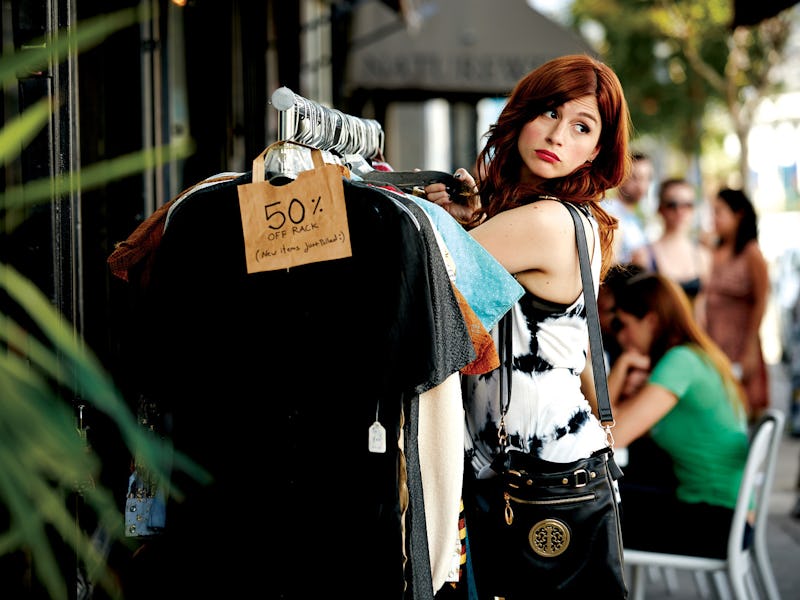How Credit Cards Recalibrated My Idea of Money (for Better and Worse)
It aint trickin' if you got (cred)it.

I moved to Los Angeles exactly two years ago, with exactly $2,000 to my name. That $2,000 is, at times, way more than I have in my account now as money ebbs and flows insanely in my life as a freelancer — which is pretty terrifying, when I focus on it. But I’ve learned to compartmentalize my finances into what I will earn and what I will owe — nothing more, nothing less. I’ve learned to give credit card payments when interest is due, before even spending money to feed myself. For that reason, I can attribute my use of credit cards as being my savior in getting by — and the reason that I developed this fucked up idea of money in the first place.
My story probably isn’t that different or original, as compared to all the other stories you’ve heard about credit cards. It usually goes something like this: young person gets credit card and thinks “free money!”, young person spends said free money in spades, young person runs out of the 0% APR grace period and has to pay the interest accrued by that debt of free money for years. This, however, is not my experience — at least, it isn’t yet. As of now, I wouldn’t be able to have moved to Los Angeles, rent my apartment, have a car, or travel back home to New Jersey without my credit cards. Without my credit cards, though, I wouldn’t be in a ton of debt. So, I mean, trade-offs, right?
The first trade-off started with my plan to move across the country. I needed a way to ship all my stuff, buy a plane ticket, and survive. $2,000 wasn’t enough for that, so I applied for a Barclaycard — the Arrival MasterCard — that would give me a $300 travel credit if I spent $3,000 in the first three months. So, I did it. It paid for my flight, the shipping of my car, and my initial moving expenses. As I earned money as the personal assistant to a dating coach in my first Los Angeles months, I slowly paid the card off. But seeing the rewards miles add up — two miles for every dollar spent — was like watching Tetris blocks stack. It was so satisfying. The more miles I fit together neatly, the faster I could use them to make minuscule amounts of my balance disappear.
I found other cards with similar offers and signed up. At present time, I have three cards. I’ve gotten three roundtrip flights from New York to L.A. for free — after the rewards and miles were redeemed — and that all happened before any interest accrued. But my video game mentality didn’t go away when the 0% APRs were up. The interest started to stack, and I frantically opened another credit card to transfer two of my balances back into the 0% range. This, too, made me feel wildly content. After all, without credit cards, I’d have no credit score at all. Am I just playing the ultimate American video game, facing bosses in the form of financial institutions? Do the rounds ever cease, or do I just go deeper until I run out of lives?
You can only really learn about credit cards by using them. No amount of personal finance research could’ve stopped me from getting those sweet rewards and introductory offers, and to be honest, those blogs only encouraged me to use credit cards to hack air travel and points systems. I did my research and I knew what I was getting into, but actually having the cards to use as my safety net ended up changing the way I think about money forever. Currency itself — the kind that you earn, not the kind that you trade for — is a safety net. Credit cards are another trapeze artist swinging toward you, telling you to trust them. They are only as strong as your grip on them. I’m still holding on, but sometimes I wonder if I should’ve ever reached out in the first place.